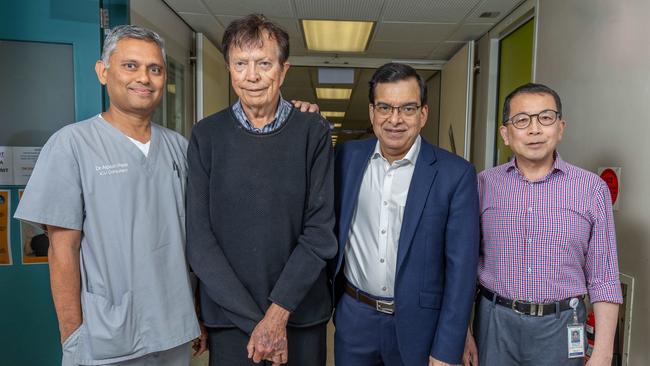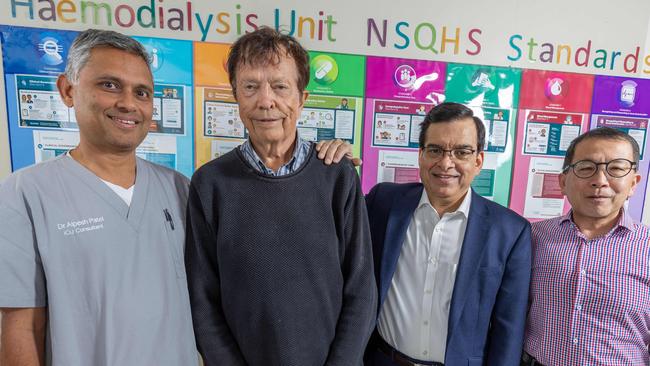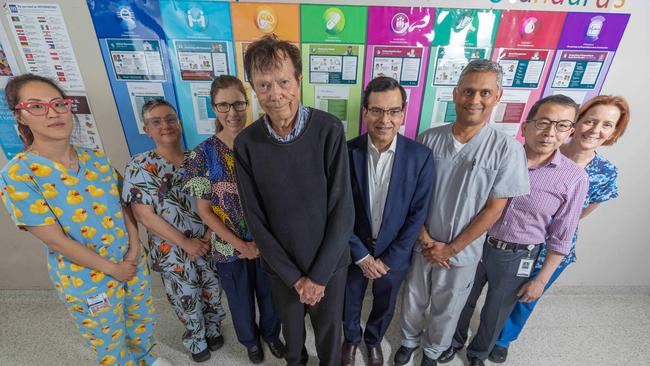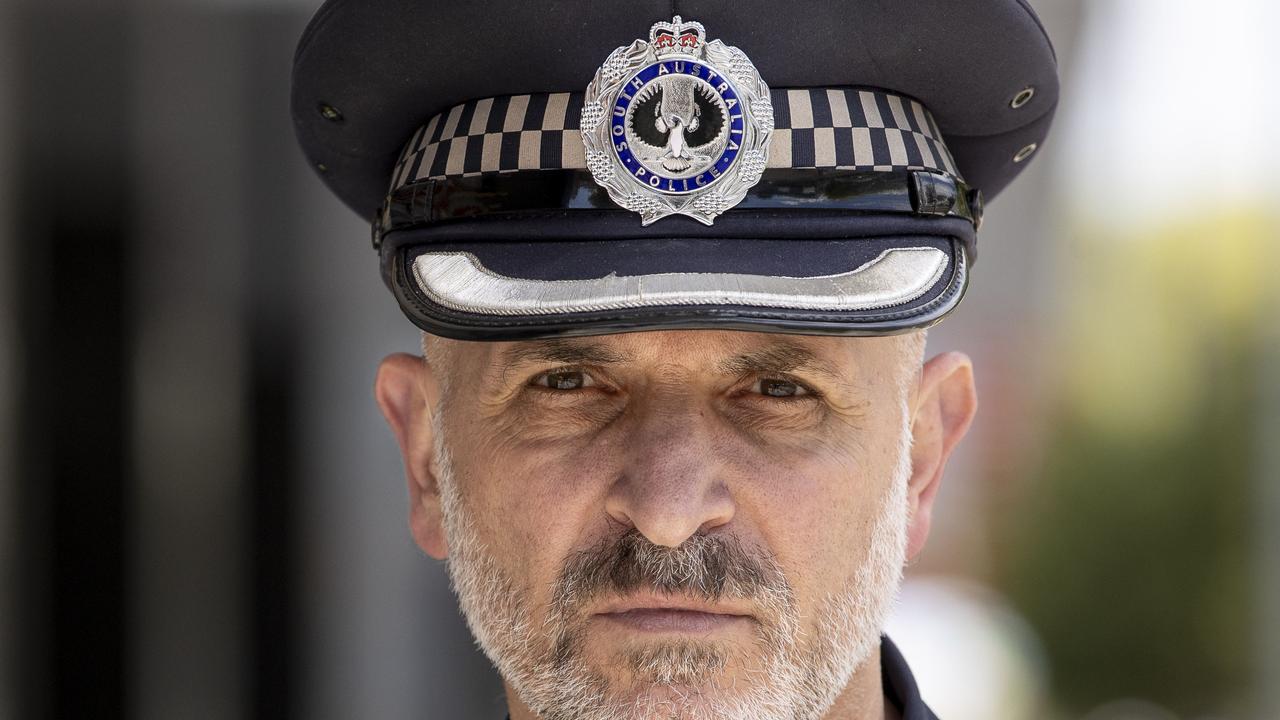Roger Fabray, 79, back on his bike after receiving rare diagnosis of life-threatening ANCA-associated vasculitis
A 79-year-old keen cyclist from Willunga man credits positive thinking with saving him from a rare disease, ANCA vasculitis, after he experienced severe pains while in Thailand.

SA News
Don't miss out on the headlines from SA News. Followed categories will be added to My News.
A South Australian man says positive thinking saved his life after he contracted a rare auto-immune disease in December, only to make an unlikely recovery a month later.
Roger Fabray, 79, was diagnosed with life-threatening ANCA-associated vasculitis – which inflames the blood vessels and affects one in 20,000 people – after he presented to hospital in severe pain all over his body.
“The family immediately gathered around me,” he said. “I knew I was in trouble when they were being very nice to me.”

Mr Fabray said after a month under a “quite traumatic” regimen of medication, dialysis and plasma exchange, he has been taken off dialysis – an uncommon outcome because his kidneys had been working at less than 5 per cent.
He said his brother, daughter and teenage granddaughters had called it “a miracle”.
The former Adelaide schoolteacher said he previously cycled 200km a week and he was back on the saddle, taking it slower with 15km rides on flat terrain while his strength returned.
“I had to come to terms with going from being fully fit to not having any power, any movement whatsoever,” Mr Fabray said.
“I was very positive throughout... didn’t want to hear anything negative at all. I just concentrated on fighting the thing like hell.”
He said he felt “convinced I was right to have that positive state of mind... the power of positive thinking is underestimated”.
After retiring, Mr Fabray moved to Thailand; he returns to Willunga, where he owns property, three times a year.
He said he first felt the strong pains in Thailand, and fortunately he had already booked a flight to Australia, where he “hobbled” into a doctor’s office after landing.
The doctor took a blood test and soon called him saying to “get to hospital immediately”.
At Flinders Medical Centre, he was diagnosed with the little-known disease.
The hospital’s nephrology director, Associate Professor Rajiv Juneja, told The Advertiser that Mr Fabray had severe pulmonary haemorrhage in addition to poor kidney function, and to be taken off dialysis after this presentation was “not very common”.

Professor Juneja said the condition’s mortality rate was as high as 80 per cent in untreated patients, but Mr Fabray’s kidney function had improved significantly and there was a strong possibility he would not need more dialysis.
Mr Fabray said he was feeling better every day.
“The renal team, the lung team... they were brilliant,” he said. “They were very professional, very thorough and saved my life.”





